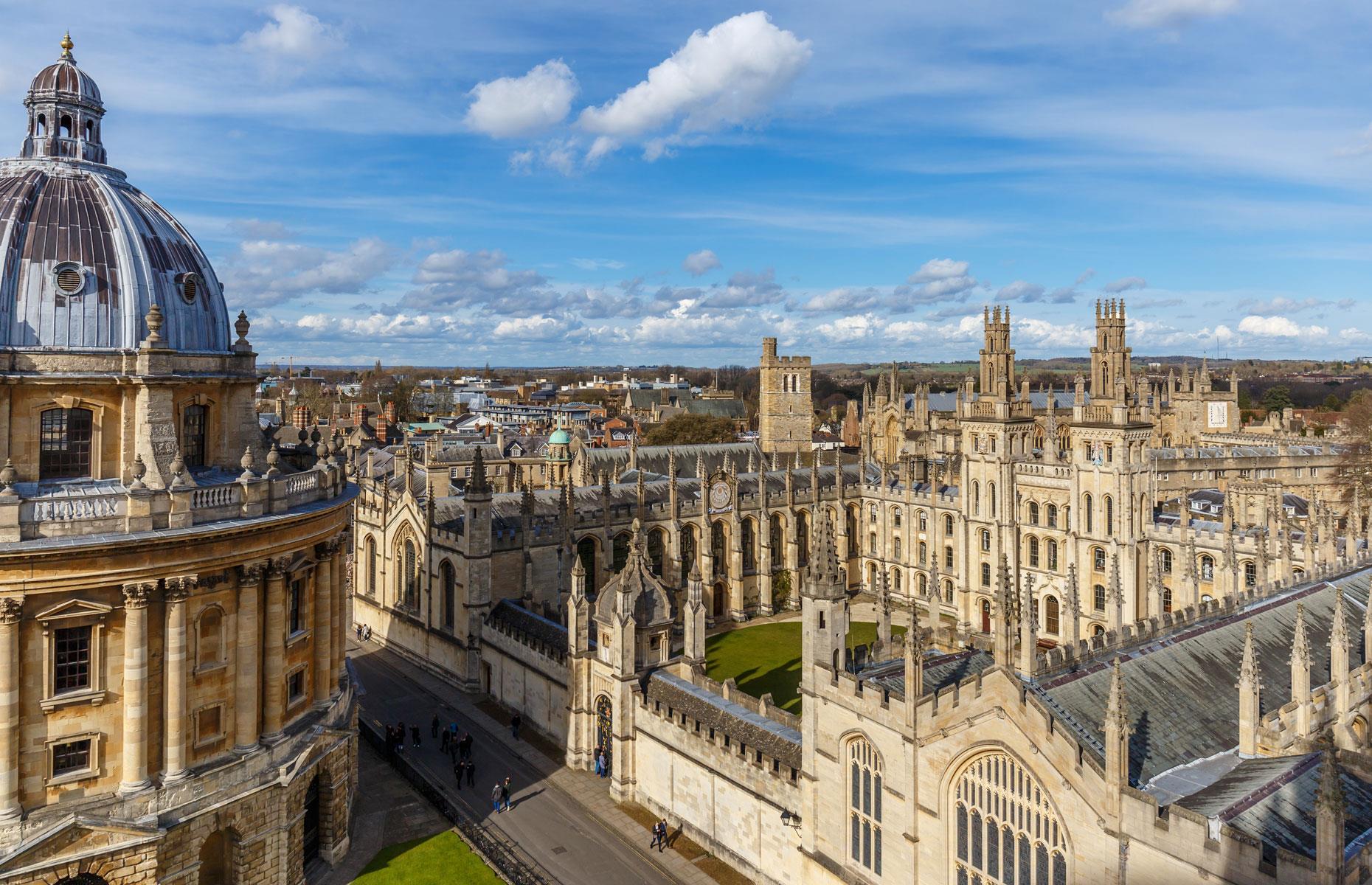The University of Oxford, with its rich history and prestigious reputation, stands as a beacon of academic excellence and intellectual curiosity. As the oldest university in the United Kingdom and one of the most renowned institutions in the world, Oxford has been at the forefront of education, shaping minds and moulding leaders across generations. From the historic cobblestone streets of its storied colleges to the bustling libraries filled with centuries of knowledge, Oxford is a place where tradition and innovation intersect.
In this blog, we will go down a slightly different route, exploring some intriguing and lesser-known facts about the oldest university in the United Kingdom, and offering a glimpse into the diverse achievements and vibrant community that make Oxford a truly unique educational powerhouse.
Start From the Beginning
The University of Oxford stands as the oldest university in the United Kingdom and is recognised as the second oldest university in the world in continuous operation. While the precise date of its founding remains unknown, records of teaching activities at Oxford can be traced back to as early as 1096. It wasn't until the early 13th century, however, that Oxford began to take the formal shape of a university as we understand it today.
You might assume that being the sole university in England at the time would make Oxford an obvious choice for ambitious students. However, this was not initially the case. During the early years, many English students preferred the renowned University of Paris for their studies. Oxford's rise to prominence is attributed to a pivotal event in 1167. King Henry II of England, amid a dispute with Thomas Becket, the Archbishop of Canterbury, banned English scholars from attending the University of Paris. This royal decree turned the tide, leading many English students to seek education at Oxford, which began its ascent as a centre of learning.
History of Oxbridge
Interestingly, the founding of the University of Cambridge, Oxford’s storied rival, is intimately connected to Oxford's own turbulent history. Established in 1209, Cambridge was born out of a conflict at Oxford. The spark was a tragic incident involving the execution of three scholars for a murder they never committed. This led to a significant rift between the townspeople and scholars (known as the riot between ‘town’ and ‘gown’), prompting a group of disgruntled academics to seek refuge in Cambridge, which at the time was considered a more welcoming environment. With a growing population of scholars in Cambridge, it was only a matter of time before the formation of a new university, which is now the second oldest university in the United Kingdom.
Though often competitors, Oxford and Cambridge have occasionally set aside their rivalry for common interests. A notable instance occurred in the 14th century when scholars from Oxford attempted to establish a new university in Stamford, Lincolnshire. Both Oxford and Cambridge united in petitioning King Edward III to quash this endeavour, successfully maintaining their duopoly over higher education in England. As a result, no new universities were permitted to open in England until the 19th century, with University College London and King's College London emerging in the 1820s. This explains why the University of St Andrews is the third oldest university in the United Kingdom, followed by the University of Glasgow and the University of Aberdeen, all based in Scotland!
Oldest of the Oldest
What sets Oxbridge apart from other universities in the UK is the college system. A college is an academic, multidisciplinary community that brings together students, faculty, and administrative staff. It provides facilities such as accommodations, libraries, dining halls, sports facilities, and more, creating a vibrant and supportive environment for learning and personal development. There are over 30 colleges at the University of Oxford, each with its own unique history and traditions, contributing to the rich tapestry of the oldest university in the United Kingdom.
Among these colleges, people naturally wonder which is the oldest at Oxford. The answer is not straightforward, as different colleges claim various titles based on the context of their founding. However, Balliol College, founded in 1263 by John de Balliol, stands prominently as one of the oldest. It has remained on its original site for an incredible 761 years, although some argue that University College or Merton College might lay claim to the title of the oldest college at Oxford.
The origins of Balliol College are particularly intriguing. Unlike its counterparts, which were often established out of noble intentions, Balliol College was founded as a result of a punishment. John de Balliol found himself in conflict with King Henry III, allegedly due to a physical altercation with the Bishop of Durham. In addition to some brutal punishment, Balliol was ordered to perform a significant act of charity. To fulfil this requirement, Balliol rented a property and established a house of scholars, which would eventually become Balliol College a few decades later.
Throughout its long history, Balliol College has been a nurturing ground for many distinguished figures who have made significant contributions to society. Among its notable alumni are H.D. Rawnsley, one of the founders of the National Trust, and Ludwig Guttmann, the pioneering figure behind the Paralympic Games. Yet, perhaps the most well-known name, albeit controversial, is Boris Johnson, the former British Prime Minister, who studied Classics at Balliol.
Oxonians on the Screen
As the oldest university in the United Kingdom, the University of Oxford offers a diverse array of courses across multiple disciplines, educating many accomplished leaders in the arena from politics to the Olympics. Previously, UAPP has introduced that it is one of the world’s best universities for Law and Economics. However, what might surprise you is that Oxford has also served as a ‘drama school’ for some of our beloved actors and actresses. ‘Mr. Bean’ Rowan Atkinson pursued a master’s in Electrical Engineering at the Queen’s College. The Notting Hill star Hugh Grant studied English Literature at New College, during which he was an active member of the Oxford University Dramatic Society. His first film was also produced by the Oxford University Film Foundation. More recently, Emma Waston, who starred Hermione Granger in the hugely successful Harry Porter series, began a master's course in Creative Writing at Oxford, having previously participated in a Visiting Student Programme at Worcester College.
While Oxford's Hall of Fame boasts a variety of celebrated figures, gaining admission to this prestigious institution is no small feat. As one of the most competitive universities in the world, Oxford seeks applicants with outstanding academic records who meet its rigorous entry requirements. Beyond academics, the university values extracurricular involvement, showcasing an applicant's skills and interests in fields other than academia. Typically, applicants are required to complete an entrance exam, which is scheduled for August, followed by an interview in December. Additionally, some applicants may need to submit a written task as part of the selection process.
From its storied origins to its remarkable alumni, this blog has uncovered fascinating and little-known facts about the oldest university in the United Kingdom, the University of Oxford. Perhaps learning these insights has sparked your determination to pursue an education at this prestigious institution.
For those interested in exploring more about different universities, be sure to stay tuned to the UAPP Blog for more insightful content and updates on higher education opportunities around the world!




